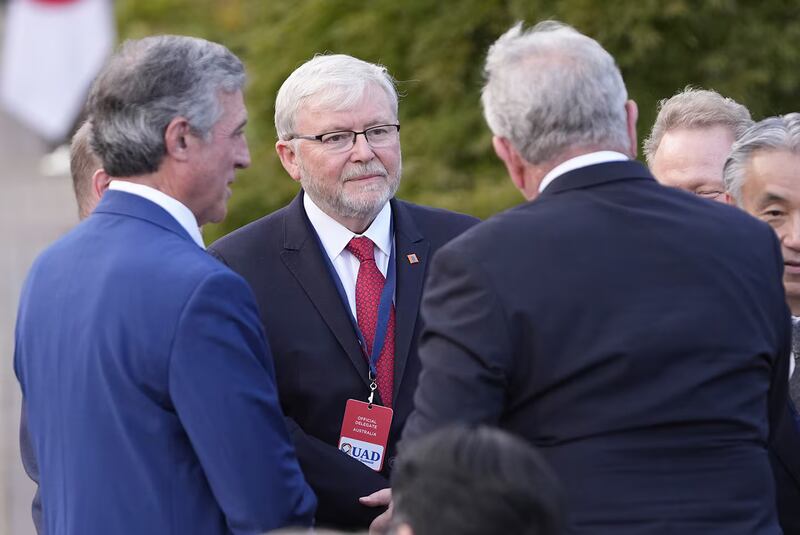The result of Tuesday’s U.S. presidential election won’t impact the future of the AUKUS or Quad security arrangements that the Biden administration has pushed in the Indo-Pacific, Australia and India’s foreign ministers said in a joint press conference in Canberra.
Speaking hours before polls opened in America, Australian Foreign Minister Penny Wong and Indian External Affairs Minister S. Jaishankar said they believed Vice President Kamala Harris and former President Donald Trump would continue with both security arrangements.
“We have an understanding on both sides of politics in the U.S. about the importance of AUKUS,” Wong told reporters. “In terms of the U.S. election, we will work with whomever the American people choose … for president, and also for the Congress of the day.”
“Historically, we’ve had an alliance for many, many years,” she added, “and it is a relationship that is bigger than the events of the day.”
RELATED STORIES
[ EXPLAINED: How would Harris and Trump differ on Asia?Opens in new window ]
[ US approves AUKUS defense sharing dealOpens in new window ]
[ China hits back at Biden’s ‘hot mic’ comment on aggressionOpens in new window ]
[ US committed to Australia nuclear subs deal, diplomat saysOpens in new window ]
[ Quad countries to launch joint maritime patrol activitiesOpens in new window ]
Wong added that Canberra saw the Quad likewise “retaining its importance regardless of the outcome of the election,” given that its four-member countries share similar visions for global security.
As is hinted by its name, AUKUS ties together Australia, the United Kingdom and the United States, while the Quad is the name given to a forum involving Australia, the United States, India and Japan.
Along with the “trilateral” between the United States, Japan and Seoul, AUKUS and the Quad have been pushed by the Biden administration in its efforts to build a “patchwork” of alliances to counter China’s rising military aspirations, even if U.S. officials deny that’s its explicit aim.
‘Nasty’ Kevin Rudd
Jaishankar, the Indian external affairs minister, said Indian-U.S. ties would likewise be unchanged whoever is in the White House.
“We have actually seen steady progress in our relationship with the U.S. over the last five presidencies, including an earlier Trump presidency,” Jaishankar said. “We are very confident that whatever the verdict, our relationship with the United States will only grow.”
"In terms of the Quad, I remind you that actually the Quad was revived under a Trump presidency in 2017," he added, noting that the group's foreign ministers even held a rare in-person meeting during COVID in 2020, when most international meetings were being held virtually.
“That should tell you something about the prospects of it,” he said.

However, the prospect of a return of a Trump presidency would likely shake up U.S. alliances with its Indo-Pacific partners at least a bit.
Australia’s ambassador in Washington and two-time former prime minister, Kevin Rudd, has a testy relationship with the former president, having – prior to his current diplomatic appointment – called him “nuts,” a “traitor to the West’’ and the “most destructive president in history.”
Trump responded by labeling Rudd “nasty” and suggesting he might need to be removed as Australian ambassador if he wins.
“I don’t know much about him. I heard he was a little bit nasty. I hear he’s not the brightest bulb,” Trump told British conservative politician and broadcaster Nigel Farage on GB News in a March interview.
“If he’s at all hostile, he will not be there long,” he said.
But both Wong and Australia’s prime minister, Anthony Albanese, who served as Rudd’s deputy prime minister in 2013, have said Rudd would not be replaced as ambassador if Trump wins Tuesday’s election.
The former prime minister was doing “an excellent job” as ambassador in Washington, Wong told Australian media earlier this year.
Radio Free Asia is an online news service affiliated with BenarNews.
